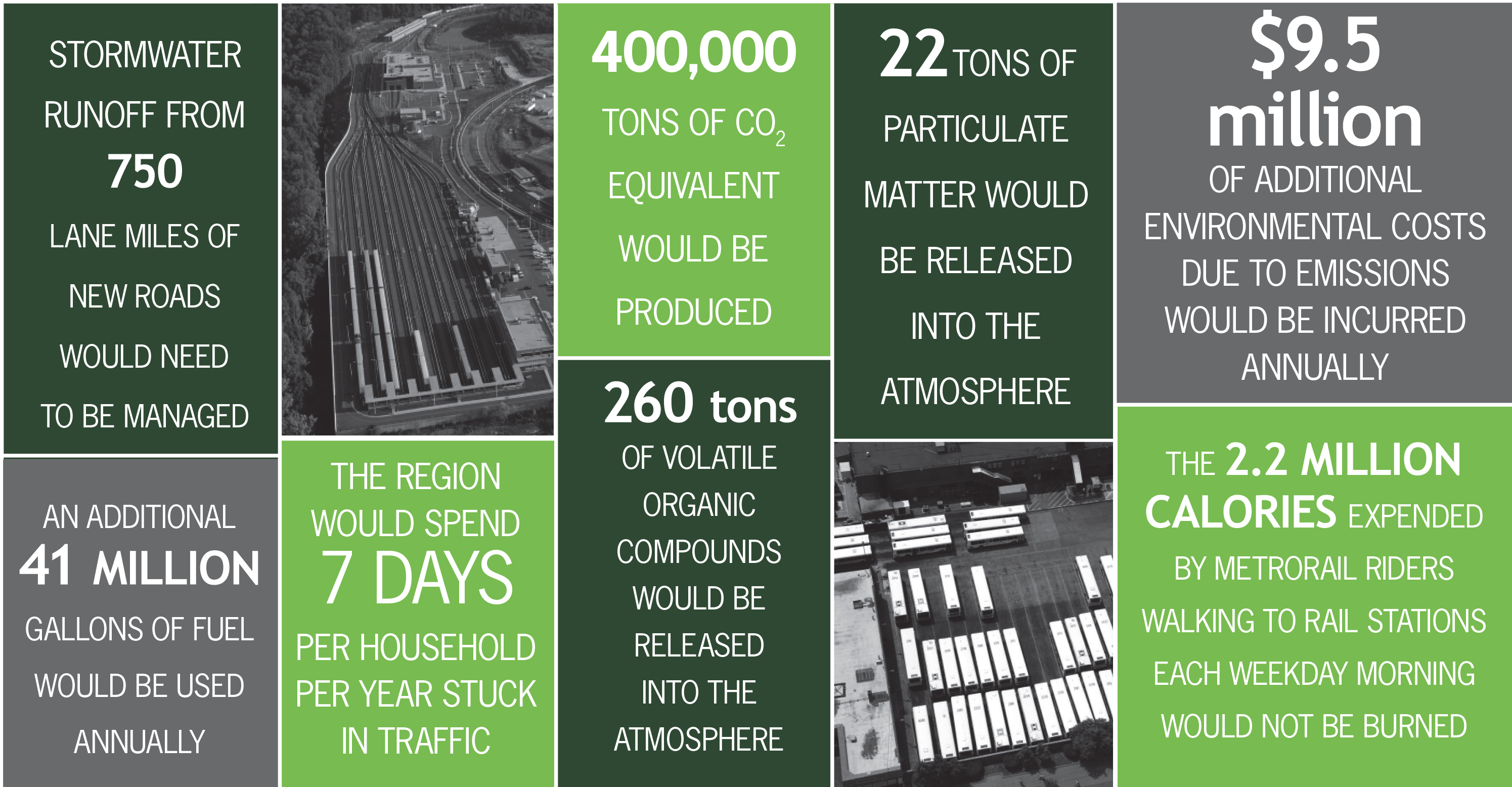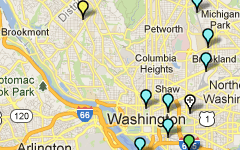The Environmental Benefits of Metro
Every time you ride Metrorail or Metrobus you make a positive impact on the region’s environment. As you can see, those positive impacts extend from the regions rivers and streams right through to the air we breathe every day. For example, without Metro:
- Stormwater runoff from 750 lane miles of new roads would need to be managed
- An additional 41 million gallons of fuel would be used annually
- The region would spend 7 days per household per year stuck in traffic
- 400,000 tons of CO2 equivalent would be produced
- 260 tons of volatile organic compounds would be released into the atmosphere
- 22 tons of particulate matter would be released into the atmosphere
- $9.5 million of additional environmental costs due to emissions would be incurred annually
- The 2.2 million calories expended by Metrorail riders walking to rail stations each weekday morning would not be burned
In particular, the positive impacts on air quality become increasingly important during the summer months when harmful ozone levels are at their highest. When it’s hot and sunny, volatile organic compounds (VOCs) from vehicle emissions react and produce low-level ozone that dramatically reduces air quality precisely when the weather is good and people are outside taking advantage of this. So with summer around the corner taking Metro never made more sense. To see some more detail on the environmental value of transit and Metro to the region check out the details here Making the Case for Transit: WMATA Regional Benefits of Transit Report.
This post forms part of a series featuring content from Metro’s Sustainability Agenda, part of Metro’s Sustainability Initiative.



Recent Comments